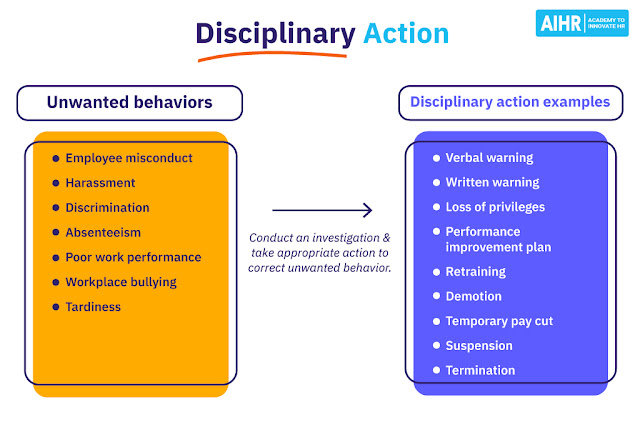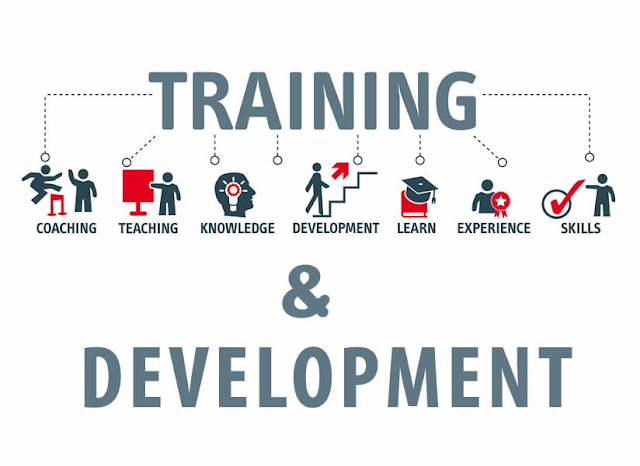Handling Disciplinary Proceedings & Balancing Employee Performance and Accountability
Introduction:
Discipline procedures are essential to upholding organizational norms and creating a productive work environment in the field of human resources management. To navigate disciplinary procedures effectively, though, one must strike a careful balance between keeping employees accountable and dealing with performance concerns related to their work. We will examine the intricacies of managing disciplinary actions in this article, emphasizing the significance of finding a middle ground between encouraging staff performance enhancement and imposing responsibility. Organizations can handle disciplinary procedures with integrity and efficacy by using proactive tactics, transparent communication, and equitable procedures.
Understanding Disciplinary Proceedings:
Organizations use disciplinary proceedings to address a variety of employee conduct or performance issues. These procedures are crucial for upholding workplace norms, guaranteeing adherence to corporate guidelines, and encouraging an accountable culture. Discipline, however, ought to be a tool for staff members' professional development rather than a means of punishment. Organizations can foster a healthy climate that supports positive outcomes by addressing disciplinary proceedings with empathy and a dedication to fairness.acas.org(2024)
Proactive Performance Management Strategies:
A crucial element of successful disciplinary actions is proactive performance management. Before performance concerns become serious enough to warrant disciplinary action, organizations should put mechanisms in place to recognize and resolve them. For the purpose of pinpointing areas that require improvement and giving staff members the assistance they require to thrive, regular performance reviews, goal-setting meetings, and continuous feedback are essential. Organisations can enhance employee engagement and satisfaction and reduce the necessity for disciplinary actions by cultivating a culture of continuous improvement and open communication.
Establishing Clear Expectations:
It is crucial to communicate expectations clearly in order to avoid misunderstandings and lower the possibility of disciplinary problems developing. All employees should understand the organization's policies, conduct requirements, and performance standards in plain language. This entails putting up written guidelines, holding instruction sessions, and consistently communicating expectations. Employees are better able to meet expectations and stay out of trouble when they know what is expected of them.
Progressive Discipline Approach:
To address performance or behaviour concerns with employees, a progressive disciplinary strategy consists of a sequence of measures that get harder over time. If the problems continue, this strategy usually begins with casual discussions or verbal warnings and moves on to more official disciplinary measures. While keeping workers accountable for their actions, progressive discipline gives them the chance to improve their performance and rectify their behaviour. Organisations can guarantee equity and openness in their actions by adhering to a systematic and uniform disciplinary procedure.
 |
| figure 1 Disciplinary Action |
Coaching and Support:
In many cases, performance issues may stem from a lack of training, resources, or support rather than intentional misconduct. Organizations should offer coaching, mentoring, and additional support to employees who are struggling to meet performance expectations. By providing targeted interventions and development opportunities, organizations can help employees overcome obstacles and improve their performance. Coaching and support should be offered in a constructive and non-punitive manner, focusing on skill development and performance improvement rather than blame or retribution.
Accountability Measures:
In order to maintain organisational standards and foster an accountable culture, accountability measures are just as important for employee development as support and coaching are. Workers need to be aware of the repercussions of their behaviour as well as the significance of abiding by organisational norms and procedures. Formal disciplinary proceedings, such as written warnings, suspensions, or termination of employment, are examples of accountability measures. These actions should, nevertheless, be taken carefully and in compliance with all applicable laws and organisational regulations.
Fair and Impartial Investigations:
Ensuring procedural fairness and defending employee rights during disciplinary processes depend heavily on conducting fair and unbiased investigations. When investigating suspected misconduct or performance problems, organisations should acquire information, speak with pertinent parties, and do in-depth investigations. Investigations must to be carried out promptly, maintaining objectivity and secrecy all along the way. Before any disciplinary action is implemented, employees must to be given the chance to address any accusations and offer their side of the story.Labourlaws (2024)
Conclusion:
In conclusion, handling disciplinary proceedings requires a delicate balance between addressing employee performance issues and upholding accountability measures. By implementing proactive performance management strategies, establishing clear expectations, following a progressive discipline approach, providing coaching and support, enforcing accountability measures, and conducting fair and impartial investigations, organizations can navigate disciplinary proceedings with integrity and effectiveness. Through these efforts, organizations can promote a culture of accountability, fairness, and continuous improvement, ultimately leading to a more productive and harmonious work environment.
References:
- Arsel, Z., Crockett, D., & Scott, M. L. (Year). Diversity, Equity, and Inclusion (DEI) in the Journal of Consumer Research: A Curation and Research Agenda.
- World Economic Forum. (Year). 6 Work and Workplace Trends to Watch in 2024.
- Harvard Business Review. (Year). 9 Trends That Will Shape Work in 2024 and Beyond.
- DISCIPLINE AND TERMINATION(2024),Conducting Fair and Impartial Disciplinary Investigations,labourlaws (online),
- https://www.acas.org.uk/disciplinary-procedure-step-by-step




Interesting topic. Its very important to follow-up correct strategies in disciplinary proceeding.
ReplyDelete"A thoughtful examination of the delicate balance between handling disciplinary proceedings and maintaining employee performance and accountability. This blog provides valuable insights into navigating challenging situations in the workplace. A must-read for HR professionals and managers striving for fairness and productivity."
ReplyDeleteVery informative and attractive post.
ReplyDelete